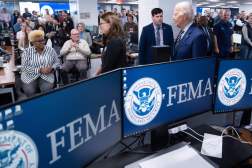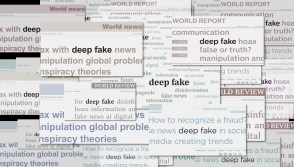

(FEMA)
Stranded in a hurricane amid rising floodwaters? Just tweet about it.
According a privacy impact assessment released last week by the Department of Homeland Security, the Federal Emergency Management Agency has launched an initiative to monitor social media during extreme events in the hopes of concentrating rescue efforts and potentially saving lives.
The plan empowers FEMA’s network of watch centers to expand the scope of their information gathering from traditional media sources, like newspapers or TV news and their websites, to social media platforms, including Twitter, Facebook and blogs.
“The purpose of this initiative is to provide critical situational awareness in support of FEMA’s mission to reduce the loss of life and property, as well as protect the nation from all hazards, including natural disasters, acts of terrorism, and other man-made disasters,” the assessment states.
The initiative is an expansion of broader DHS social media monitoring efforts, which have been ongoing since 2012. In a preemptive counter to concerns that the monitoring may violate privacy laws, the documents explain that FEMA would only monitor publicly available information, and would only be allowed to collect personally identifiable information, like location and physical condition in the case of circumstances where life and death are at stake.
In an appendix, examples of such situations were outlined.
“Two users in the area (location), @username and @username, claim their family members are trapped in a collapsed building,” and “User @username is reporting significant flooding in his neighborhood (location). User claims to be in the area and stuck on the roof of the house with no way to evacuate the area,” were sample texts that could justify a response.
According to the document, the initiative is sanctioned under the Homeland Security Act, which charges FEMA with providing thorough situational awareness to its responders on the ground and establishing programs to facilitate the gathering of such information.
FEMA will mitigate the risk of collecting inaccurate information by leveraging numerous publicly available information sources to corroborate questionable reports. In response to concerns that FEMA could share the information with other agencies or retain it for longer than is justified, the agency responded that it would disseminate information only to first responders and limit retention to the scope of a particular emergency, redacting it afterwards.






